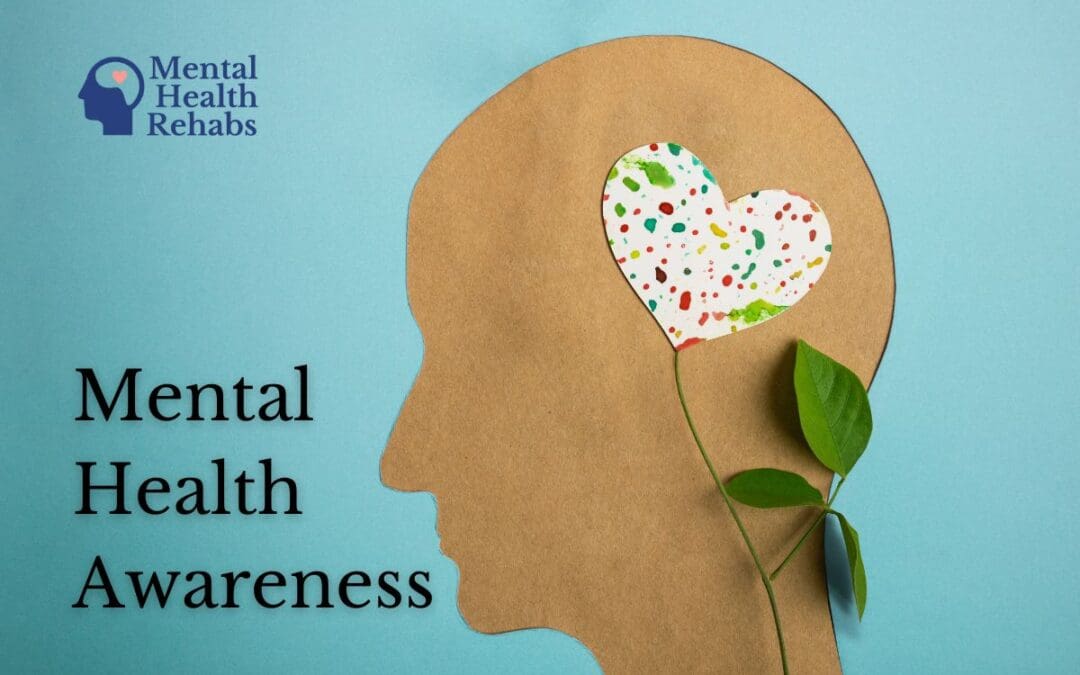There’s a stigma around suffering from a mental illness that doesn’t exist for many other illnesses. Mental health awareness movements and campaigns are trying to bring down this stigma and make society more welcoming for everyone. Keep reading to know more about the importance of mental health awareness and all the good it brings to the world.
What Is Mental Health Awareness?
Mental health awareness is an ongoing effort to reduce the stigma around mental health and mental illness. Usually, this is done by sharing personal experiences, promoting educational content, hosting awareness events, and more.
Mental health awareness helps us break down this custom of dehumanizing those that struggle mentally.
Why Is Mental Health Awareness Important?
By spreading mental health awareness, we help other people understand that mental health struggles are common and should be treated by mental health professionals the way other medical professionals treat physical illnesses.
Mental illnesses are common in the US. In 2020, approximately 52.9 million US adults had a mental illness. Almost 49.5% of teenagers struggle with a mental disorder.
There are dozens of millions of people living with mental illness in the US, and spreading mental health awareness helps them understand that despite what popular wisdom may say about them, they are worthy of treatment.
Mental health awareness helps:
- Understand symptoms: because mental illnesses still carry a stigma, most people don’t know how to recognize specific signs. Talking about mental health can help you (and others) recognize symptoms to take action earlier.
- Starts a conversation: talking about mental health opens a whole new world of possibilities. Some people might feel scared to ask for support at home or work because there aren’t conversations about mental health in their environment.
- Improves education: everyone must understand how mental health affects their daily lives. Whether as a caregiver or someone living with a mental illness, mental health awareness opens the room for better and greater educational opportunities.
- Promotes mental care: most people only think about mental health as related to mental illness. However, discussing mental care and incorporating mental health into our collective care plan is essential.
Every year, millions of people die of mental health issues. Suicide is one of the top causes of death in the United States. Mental health awareness can help save a life. It can help provide better resources to those who need them and prevent tragic outcomes.
Ways To Raise Mental Health Awareness
Every year, hundreds of organizations talk about mental health awareness. However, there are many things you can do as an individual to understand mental health better and spread awareness.
- Educate yourself about warning signs of mental illness: common symptoms include mood changes, uncharacteristic behavior, sleep pattern disruptions, and frequent sadness.
- Be kind and compassionate to others: mentally ill people have been ridiculed for too long. Being empathetic to everyone around you helps you develop empathy for those struggling mentally.
- Volunteer in awareness events: make a difference by being part of the change.
- Be open to talking about mental health issues: if someone approaches you about their mental health struggles, be open and understanding. It’s not your job to provide mental health counseling to others, but being a welcoming presence in their life may encourage them to seek help.
- Include children: teach children to be kind to those with mental illness and not to call them names.
Raising awareness about mental health is a long and arduous process, but it is possible.
Mental Health Resources
If you or someone you love deals with mental health challenges, consider seeking help. Whether you speak to a therapist or confide in a close friend, starting an open, honest conversation about mental health works.
Remember, you don’t have to go through this alone. There are many organizations and resources available to help:
- Call the National Alliance on Mental Illness (NAMI) helpline
- Call the National Suicide Prevention Lifeline
- Call the Substance Abuse and Mental Health Services Administration (SAMHSA)
You can also find support groups that might help. Some support groups specialize in conditions like depression, anxiety, or substance use disorders. These groups might not be considered official treatment, but they can help you build a sense of community and belonging.
Always consult with a doctor or trained mental health professional. Let your medical care team know how you’re feeling. Mental health is as important as overall health to help you feel your best.

